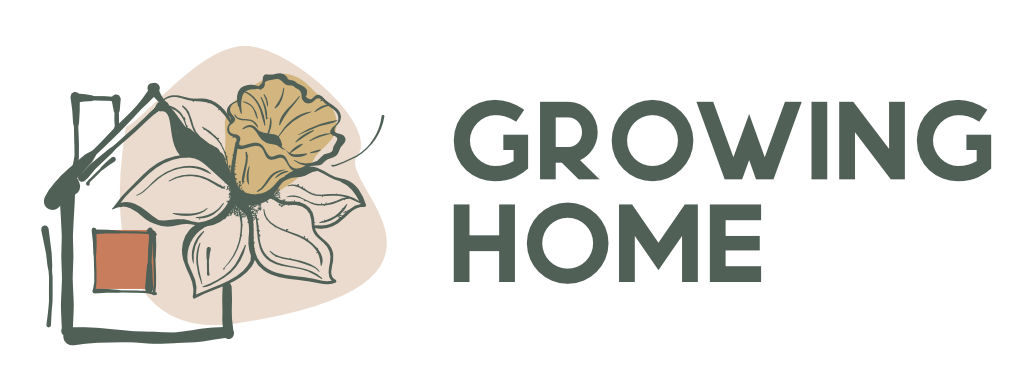Last Updated on September 28, 2022 by growinghome.la

Personal finance books are great resources for anyone looking to learn how to manage money better. Whether you’re just starting out in life or already have a good handle on finances, there are plenty of helpful books that will teach you new skills and strategies. These books will also come in handy as you’re preparing to buy your first home.
When I was in my early 30’s, I realized that I was in trouble. By letting myself spend without thinking, I’d gotten myself into a hole that kept me awake some nights and gave me low-grade anxiety almost daily. I knew I had to take action and do something, but I felt intimidated by finances. I was the only person in my family who hadn’t pursued a career in business. It wasn’t until I started reading about personal finance that I started enjoying my own finances.
Here are some of the best personal finance books for beginners. All of these books helped me wipe out my debt and save over $40,000 in just 3.5 years. This achievement was critical as I was preparing to buy my first home.
Personal Finance Book #1: The Automatic Millionaire: A Powerful One Step Plan to Live and Finish Rich by David Bach
This book was the one that started it all for me. It shares a few key points that I could really relate to and that makes personal finance and wealth building more manageable for everyone. Some key ideas that David Bach shares are:
- You don’t have to make a lot of money to be rich.
- You don’t need discipline.
- You don’t need to be “your own boss.”
- The rich get rich (and stay that way) because they pay themselves first.
- Homeowners get rich; renters get poor. (Note: While I believe this 100%, I also believe that it’s important to keep renting until you’ve built a solid financial foundation. It’s important to understand the costs that come with owning a home).
The best advice I got from this book was to make your savings automatic and something you don’t have to think about or take any action other than setting it up. If you do this, you’ll watch your savings grow effortlessly.
Personal Finance Book #2: Passive Income Aggressive Retirement by Rachel Richards
Rachel Richards’ book blew my mind. Rachel quit her job and retired at age 27 with over $10,000 per month in passive income. She teaches her readers that passive income is real and attainable for everyone, no matter your age or income. By sharing her story, she proves that by making strategic real estate investments, you can create financial freedom.
I love this book because it teaches you all the different kinds of passive income. It also gives you a chance to explore which avenue(s) you might want to pursue to help you build wealth and financial freedom.

Personal Finance Book #3: The Psychology of Money by Morgan Housel
While this book doesn’t teach you how to manage your money, it does transform how you see it. Morgan Housel shares how although money is often taught as a data and math based concept, “doing well with money isn’t about what you know. It’s about how you behave.”
Using 19 short stories to share his teaching about money psychology and behavior, he explores the various ways people think about money. This can help you to make better sense of how you relate to money in your own life. It’s a fascinating read – I even gave a copy to my dad, who has been a financial advisor for over 35 years, and he loved it.
Book #4: Think and Grow Rich by Napoleon Hill
This book is actually thought of in many circles as a self-help book. However, Napoleon Hill’s book absolutely helped me learn more about how your money mindset can directly affect your ability to grow wealth. If you don’t believe you can, how will you motivate yourself to start?
One of the key strategies that I still use from this book is the visualization method that he teaches. He talks about how establishing specific goals for the wealth you want to acquire is key to your success such as: the amount of money you want to acquire, what date you want to acquire it by, what you intend to give in return for the money, and any plans you have for making this money.
I share a little more about goal-setting strategies in this post.

Personal Finance Book #5: Rich Dad, Poor Dad by Robert Kiyosaki
There’s a reason this book makes it to many top business and finance leaders “best personal finance books” lists – it’s a classic.
Robert Kiyosaki teaches his readers how to recognize what makes something an asset vs. a liability. He says that understanding this concept is the number one rule of finance. Using real examples, he shares the various ways that you can make money work for you, rather than working for money.
Robert also challenges the belief that your house is always an asset, something that I also believe. A house can absolutely be an asset, but there are specific strategies that homebuyers can use to ensure that your house becomes an asset for you. To learn more about this, I invite you to join my course, The Stress-Free Homebuyer. Module 2 of the course covers Personal Finance 101 for Homebuyers.
Book #6: The Life Changing Magic of Tidying Up by Marie Kondo
This one may surprise you since it’s not technically a personal finance book but I credit the KonMari method that Marie Kondo teaches for completely changing how I think about the things I own and my relationship with them.
I was so enamored with her, that I went to one of her book signings in New York way back in 2016 and was featured in this New York Times article about the book and its impact on me.
This book taught me a few key lessons that translate to your mindset about money and spending.
- Most people own way more items than they think. By using Marie’s tidying tip to pile every item you have in each category: clothing, books, papers, komono (miscellaneous items), sentimental items, and photos when you tidy, you realize the sheer amount of stuff you really own. You realize that you might not actually need all those items and it makes you think twice about buying more.
- Focus on what sparks joy for you. This is a key principle when thinking about your spending. I don’t judge my spending or get mad at myself for overspending in one category or another, I learn from it. I review my finances and remember the experience I had while buying that item or eating that food. If I decide it sparked joy for me, I let it go. If I realize that it didn’t serve me or wasn’t worth it, I take note of that for next month. Then, I think about whether I want to continue spending on that particular item or experience. You can read more about my tips for thinking about spending here.
- The act of tidying dramatically transforms your life. This applies as much to money as clothes and personal items. If we take the time to review and “tidy” our finances, we are taking action. Taking action makes us feel more confident, allowing us to overcome fear we may have around our personal finances.
I’d love to hear if these books helped you! Feel free to let me know by DMing me on Instagram at @growinghome.la or emailing me at lindsay@growinghomela.com
